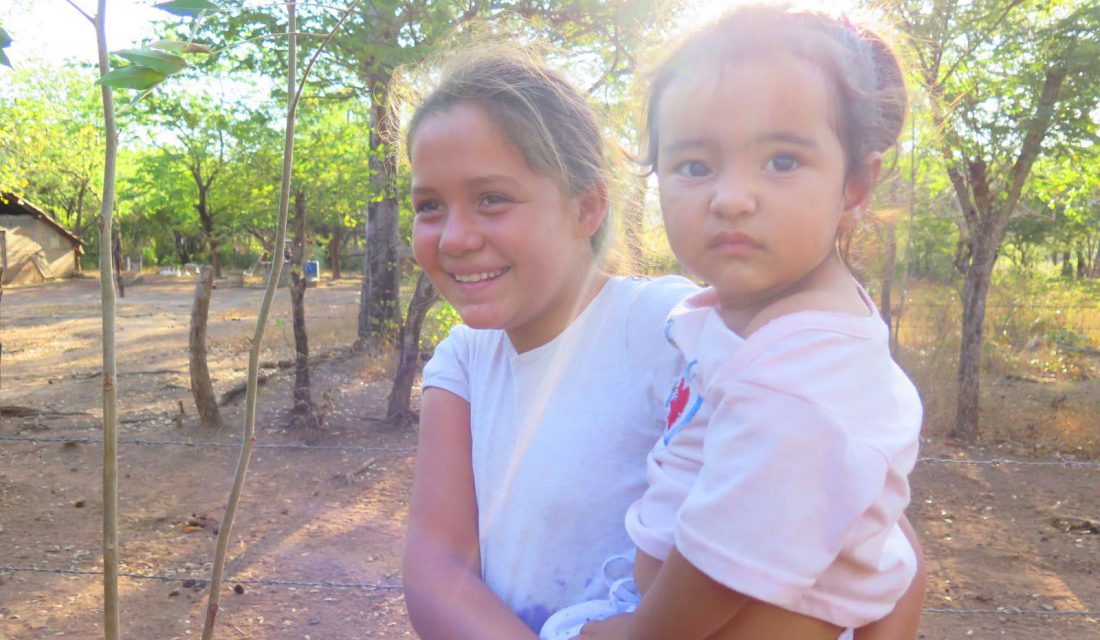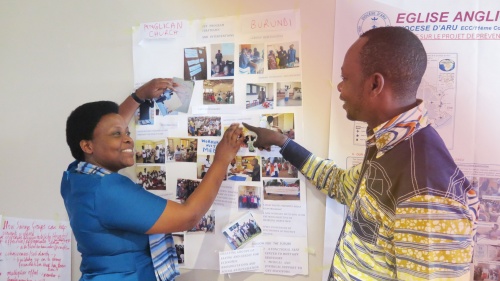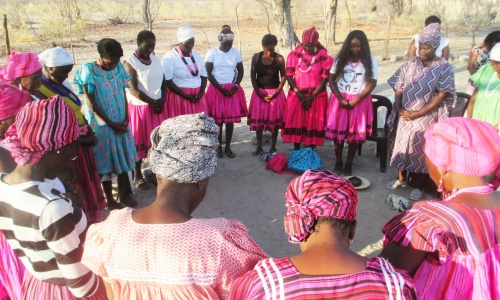The Universal Language of Kindness

For World Kindness Day 2018, Episcopal Relief & Development Engagement Associate Jessica Forrester recalls the advice her grandmother gave her as a child – words she carries through her own journey of motherhood. We follow her reflections, and even find out how kindness is scientifically proven to be good for you!
“Kindness is the language which the deaf can hear and the blind can see.”
– Mark Twain
When I was a child, my maternal grandmother lived with myself and my parents. She was a source of love and wisdom, and as Grandmothers do, she taught me many life lessons. These often came in the form of parables or short sayings.
One saying that I remember vividly is: “It’s better to be kind than nice.” As a child, I didn’t understand what that meant. Even as a young adult, I thought it was just something my grandmother would say. I never gave it a second thought.
 Photo taken at a GBV Global Partner Meeting in Cape Town, South Africa by Vanessa Pizer, Senior Program Officer
Photo taken at a GBV Global Partner Meeting in Cape Town, South Africa by Vanessa Pizer, Senior Program Officer
As I got older, I learned that being nice is externally motivated. Nice is being polite and agreeable, but it doesn’t necessarily come from a place of benevolence. Acts of kindness, on the other hand, I observed, are genuine and rooted in love. When someone is being kind, it’s done from a pure and authentic place. It is an intentional act; it is void of ego, selfishness, fear and self-serving motives.
“For beautiful eyes, look for the good in others; for beautiful lips, speak only words of kindness; and for poise, walk with the knowledge that you are never alone.”
– Audrey Hepburn
One act of kindness a day keeps the doctor away
For many years, researchers have studied how acts of kindness affect people. It is said that a person undergoes a physiological reaction every time they perform an act of kindness.
Some of the effects are a lower heart rate, decreased internal stress hormones, increased energy, and improvement of all-around health. It was also discovered that kindness not only has short-term but long-term effects – it is even said you may live a longer and happier life!
The universality of kindness
Kindness is the connective tissue that brings us together despite race, religion, sexual orientation and gender identity. It is an innate part of who we are and part of our moral fabric!
 Photo taken at Episcopal Relief & Development’s Namibia “Savings with Education Program” by Tammi Mott, Episcopal Relief & Development’s Director for Institution Strengthening
Photo taken at Episcopal Relief & Development’s Namibia “Savings with Education Program” by Tammi Mott, Episcopal Relief & Development’s Director for Institution Strengthening
Kindness is also one of the greatest commandments that Christ taught us. In Mark 12:31, Jesus says that we should love our neighbors as we love ourselves. And for me, that starts with kindness, even in the small everyday interactions with strangers – our neighbors, in Jesus’ eyes.
I never really got the chance to thank Granny properly for teaching me the importance of kindness. However, perhaps reflecting her words in my daily life would be a far greater way of translating and passing on her words.
I try to live by the verse of Proverbs 21:21: “Whoever pursues righteousness and kindness will find life, righteousness, and honor,” which was also one of her favorite passages. Using the gift of kindness to be the light of the world. I live by this philosophy and look forward to teaching my 8-month-old daughter all about the beauty of kindness.
#WorldKindnessDay2018
Today is World Kindness Day, an international day created to encourage people across the world to perform random acts of kindness.
What can you do?
Simple things like sending an uplifting text to a friend or reaching out to a family member you haven’t spoken to in a while; volunteering at your local library by reading stories to the children, or making a contribution to our Holiday Match Campaign! Learn more about matching your gift.
The little things that we take for granted that can make a difference in someone else’s life. Everyday I make a conscious effort to be kind to everyone I encounter. With today’s political climate, a little good will can help heal us as a nation and as citizens of God’s Kingdom. Today you can make a difference in the life of someone. What acts of kindness will you do today?
*Feature image taken from our Nicaragua program with the Council of Protestant Churches of Nicaragua (CEPAD) by JenJoy Roybal
Further Reading:
Caring and Compassion for People Living with HIV/AIDS
 Jessica Forrester is Associate for Engagement at Episcopal Relief & Development
Jessica Forrester is Associate for Engagement at Episcopal Relief & Development
Did you know that you can support Episcopal Relief & Development every time you shop on Amazon.com? Sign up for Amazon Smile and simply select us as your charity!



